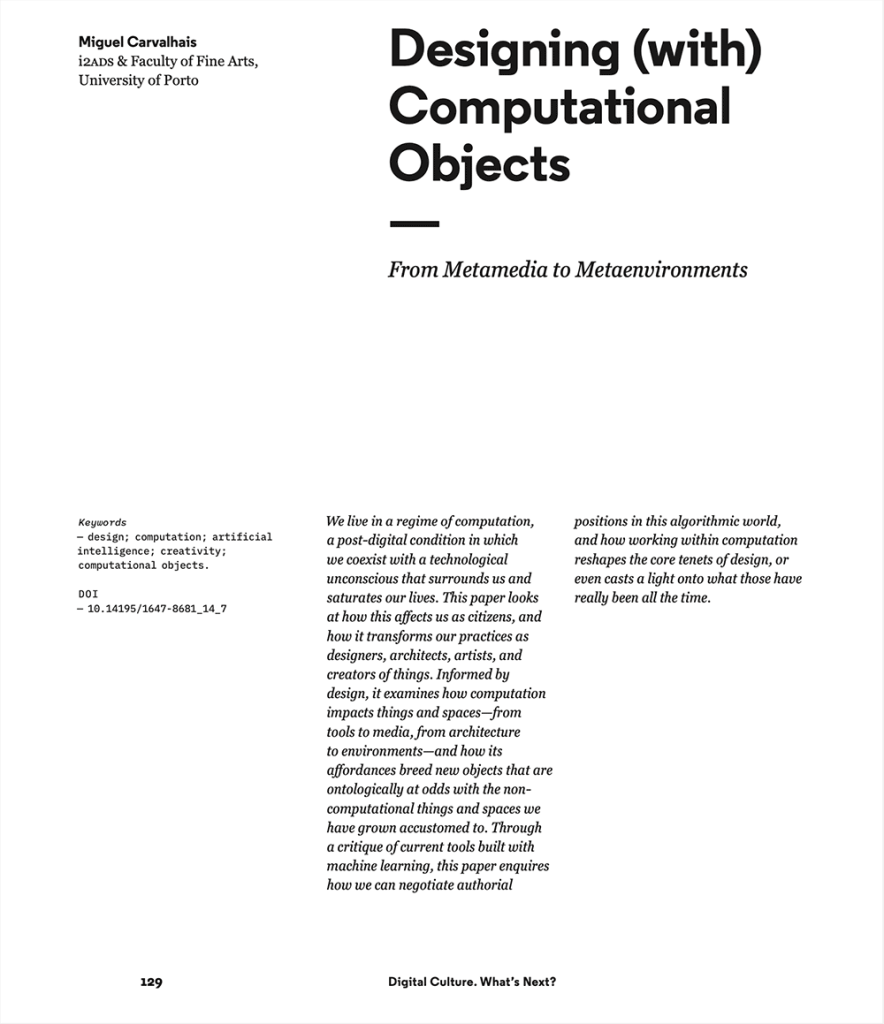We live in a regime of computation, a post-digital condition in which we coexist with a technological unconscious that surrounds us and saturates our lives. This paper looks at how this affects us as citizens, and how it transforms our practices as designers, architects, artists, and creators of things. Informed by design, it examines how computation impacts things and spaces—from tools to media, from architecture to environments—and how its affordances breed new objects that are ontologically at odds with the non- computational things and spaces we have grown accustomed to. Through a critique of current tools built with machine learning, this paper enquires how we can negotiate authorial positions in this algorithmic world, and how working within computation reshapes the core tenets of design, or even casts a light onto what those have really been all the time.
